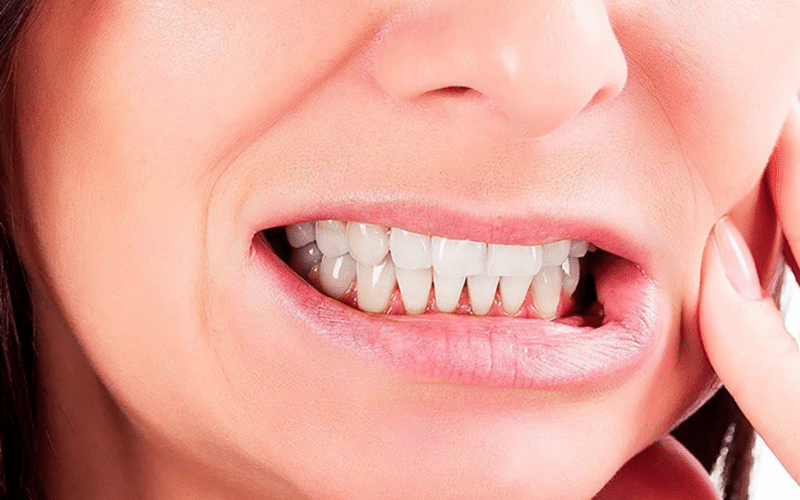Teeth grinding, also known as bruxism, is a common problem that affects millions of people. Whether it's due to stress, misaligned teeth, or a sleep disorder, bruxism can lead to severe dental issues, including worn-down teeth, jaw pain, and headaches. Fortunately, there are several Teeth Grinding options available to help prevent further damage and alleviate the discomfort caused by this condition. In this article, we will explore various treatments including mouthguards, therapy, and lifestyle changes.
Mouthguards: Essential Protection for Your Teeth
One of the most effective ways to treat teeth grinding is with the use of a mouthguard. Mouthguards serve as a protective barrier, preventing your teeth from grinding against each other, reducing damage, and easing jaw tension.
Benefits of mouthguards include:
- Protection from tooth damage: Mouthguards help safeguard your teeth from wear and tear caused by grinding.
- Reducing jaw strain: By cushioning your teeth, they reduce the pressure on your jaw muscles, helping to alleviate discomfort.
- Improved sleep: Mouthguards can minimize nighttime pain and disturbances, leading to better sleep quality.
Custom-made mouthguards fitted by a dentist are usually recommended for optimal comfort and effectiveness.
Behavioral Therapy: Tackling the Root Causes
Bruxism is often linked to emotional stress and anxiety. Behavioral therapy can help address these underlying issues, making it a powerful treatment option.
Types of behavioral therapy:
- Cognitive Behavioral Therapy (CBT): CBT helps you identify and modify the negative thought patterns that contribute to stress and anxiety, reducing the likelihood of grinding.
- Relaxation techniques: Methods such as meditation, deep breathing, and progressive muscle relaxation can help lower stress and reduce the triggers for teeth grinding.
- Biofeedback: Using sensors to monitor your muscle activity, biofeedback teaches you how to control your jaw muscles consciously.
Therapy can be highly effective in managing the emotional triggers of bruxism.
Dental Adjustments: Correcting Misalignments
Sometimes, teeth grinding occurs due to dental misalignments, which can cause an improper bite. In these cases, dental treatment may be necessary to fix the underlying issue.
Dental treatments for bruxism include:
- Orthodontics: Braces or clear aligners can straighten your teeth and help correct your bite, potentially reducing grinding.
- Bite adjustments: Dentists may reshape your teeth or use dental appliances to ensure that your bite is more aligned and balanced.
- Crowns and restorations: If grinding has caused tooth damage, crowns or bonding can restore the structure and function of your teeth.
Correcting bite issues can offer significant relief from teeth grinding.
Medication: Managing Symptoms Effectively
When teeth grinding is severe, or when other treatments haven’t worked, medication may be recommended to help manage the condition. Medications can be particularly useful for individuals whose bruxism is caused by anxiety or sleep disorders.
Common medications include:
- Muscle relaxants: These medications can help relax the jaw muscles, preventing the intense tension that leads to grinding.
- Anti-anxiety drugs: Medications such as selective serotonin reuptake inhibitors (SSRIs) can reduce anxiety, a common cause of bruxism.
- Botox injections: In extreme cases, Botox can be used to relax jaw muscles and reduce the effects of grinding.
Medications should be prescribed and monitored by a healthcare professional to ensure proper use and safety.
Lifestyle Changes: Preventing Bruxism Naturally
Incorporating healthy lifestyle changes can help reduce the frequency and intensity of Teeth Grinding Treatment. These changes can address both the physical and emotional triggers that contribute to bruxism.
Lifestyle tips to help reduce bruxism:
- Stress management: Practicing relaxation techniques like yoga or meditation can help reduce stress levels, preventing bruxism.
- Regular exercise: Physical activity helps relieve tension and anxiety, reducing the likelihood of grinding.
- Avoid stimulants: Limit caffeine, alcohol, and nicotine intake, especially in the evening, as these can increase the likelihood of grinding.
- Good sleep hygiene: Establishing a consistent bedtime routine and creating a relaxing sleep environment can improve the quality of your rest.
By implementing these habits, you can naturally reduce the triggers for teeth grinding.
Regular Dental Checkups: Early Detection and Prevention
Even if you don’t experience noticeable symptoms, it’s important to have regular dental checkups to monitor the health of your teeth and jaw. Dentists can detect signs of bruxism early and recommend appropriate treatment options.
What to expect during checkups:
- Examination of teeth: Your dentist will check for signs of wear, fractures, or damage to your teeth caused by grinding.
- Jaw assessment: The dentist may evaluate your jaw muscles and temporomandibular joint (TMJ) to identify any issues caused by bruxism.
- Custom treatment plans: Based on your specific needs, your dentist may recommend mouthguards, orthodontics, or other dental interventions to prevent further damage.
Routine dental visits will help ensure that any early signs of bruxism are addressed promptly.
Conclusion:
Teeth grinding is a manageable condition with the right treatment approach. Whether it’s through mouthguards, behavioral therapy, dental adjustments, medication, or lifestyle changes, there are numerous options available to reduce the effects of bruxism and protect your teeth. If you suffer from teeth grinding, it’s important to consult a dentist or healthcare professional to find the best treatment plan tailored to your needs. With timely intervention and a comprehensive approach, you can stop teeth grinding and protect your oral health.

